Hey there! If you’ve ever been prescribed Xeloda (capecitabine) you probably know that it’s a powerful ally in the fight against certain cancers. But like any strong medicine, it brings a whole cast of companions—some helpful, some tricky. In this friendly guide I’m breaking down everything you need to know about Xeloda drug interactions so you can stay safe, feel confident, and keep the treatment working its best. Let’s dive in, shall we?
Quick Takeaways
- About 290 drugs are known to interact with Xeloda—62 major, 203 moderate, 25 minor.
- There’s only one alcohol/food interaction, but it’s a major one: multivitamins that contain folic acid.
- Red‑flag combos include warfarin (or other blood thinners), folic‑acid supplements, and many chemotherapy partners. Monitoring is crucial.
Got that? Great! Now let’s explore why these interactions matter.
Why Care
Understanding Xeloda drug interactions is a bit like reading the fine print on a contract—you might not need every detail, but missing a key clause can turn a smooth ride into a bumpy road. When you know the risks, you can:
- Maximize treatment benefits – avoid unnecessary side‑effects that could force a dose reduction.
- Prevent emergencies – serious bleeding or severe diarrhea can land you in the ER.
- Feel empowered – you’ll be able to have a clear, confident conversation with your oncologist and pharmacist.
In short, awareness equals safety, and safety equals peace of mind.
Interaction Types
| Interaction Type | # Known | Typical Severity | Example(s) |
|---|---|---|---|
| Prescription drugs | 290 | 62 major, 203 moderate, 25 minor | Warfarin, amlodipine, aspirin, oxaliplatin |
| Alcohol / Food | 1 | Major | Folic‑acid‑containing multivitamins |
| Disease conditions | 7 | Variable | Renal dysfunction, DPD deficiency |
| Supplements | — | Major/Moderate | Folic acid, herbal antiplatelets |
These numbers come from a comprehensive drug‑interaction database that tracks every known pairing.
High‑Risk Drugs
Warfarin & Other Coumarins
Blood thinners love to keep your clotting numbers steady, but Xeloda can push them over the edge. The result? A soaring INR and a bleeding risk that feels like walking a tightrope. The FDA even includes a boxed warning about this combo (DailyMed source). What to do? Check your INR 2–3 times a week when you start Xeloda and let your provider tweak the warfarin dose as needed.
Common Chemotherapy Partners
Many oncologists give Xeloda together with other agents like oxaliplatin, docetaxel, or irinotecan. While this “combo‑therapy” can be more effective against the tumor, it also stacks up the toxicity. You might notice stronger nausea, deeper drops in blood counts, or more intense hand‑foot syndrome. The key is close monitoring—usually a weekly CBC and a good eye on your gut health. If you feel a sudden surge of fatigue or notice new bruises, give your care team a call right away.
Aspirin & NSAIDs (Ibuprofen, etc.)
These over‑the‑counter pain relievers can make Xeloda‑related bleeding worse. If you need a headache remedy, stick to the lowest effective dose, and consider a short‑term course of acetaminophen instead. A proton‑pump inhibitor can also help protect your stomach if NSAIDs are unavoidable.
Blood Pressure & Cholesterol Meds
Drugs such as amlodipine, lisinopril, or atorvastatin usually sit in the “moderate” zone. They can affect how Xeloda is cleared from your body, but most people manage fine with routine labs. Just keep an eye on any new dizziness or swelling.
Alcohol & Food
Folic‑Acid‑Containing Multivitamins (Major)
Here’s a surprise: taking a regular multivitamin that has any amount of folic acid can boost Xeloda’s effect to a dangerous level. Studies have reported severe diarrhea, hand‑foot syndrome, and even fatal colitis when patients combined capecitabine with folic‑acid supplements (Drugs.com). If your doctor has not specifically ordered leucovorin (a form of folate used to amplify chemotherapy), ditch the folic‑acid vitamins while you’re on Xeloda.
Alcohol
There’s only one listed alcohol/food interaction and it’s not classified as severe. That said, alcohol is processed by the liver—the same organ that metabolizes Xeloda—so heavy drinking can strain an already busy system. A good rule of thumb: keep it to a glass or two a week, and always let your oncologist know if you plan to indulge.
Supplements & Herbs
| Supplement | Interaction Level | Potential Effect | Practical Advice |
|---|---|---|---|
| Folic acid / Leucovorin | Major | Amplifies Xeloda toxicity (GI, bone‑marrow) | Only use if prescribed; otherwise avoid. |
| Vitamin C, E, Selenium | Minor–Moderate | May change oxidative pathways; data limited | Stay within RDA levels; discuss with pharmacy. |
| Herbal antiplatelets (ginkgo, ginger, turmeric) | Moderate | Increase bleeding risk, especially with warfarin | Stop 2 weeks before chemo cycles. |
| St. John’s Wort | Moderate | Induces liver enzymes, possibly lowering Xeloda levels | Discontinue at least 2 weeks prior to treatment. |
Whenever you reach for a supplement, think of it as a new medication. Talk to your oncology pharmacist—most will gladly run a quick interaction check for you.
Disease Factors
Renal Dysfunction
If your kidneys aren’t filtering well (creatinine clearance < 30 mL/min), Xeloda can linger longer in your blood, raising toxicity. Doctors usually cut the dose by about 25 % and keep a tight watch on BUN/creatinine each cycle.
Hepatic Dysfunction
A mildly diseased liver can boost Xeloda’s exposure by roughly 60 %. That’s enough to turn a tolerable rash into a painful burn. Mild‑to‑moderate liver issues call for a modest dose reduction and weekly liver‑function tests.
DPD Deficiency
DPD (dihydropyrimidine dehydrogenase) is the enzyme that breaks down capecitabine. If you lack it, even a standard dose can be catastrophic. Many cancer centers now screen for DPD deficiency before starting Xeloda—ask your oncologist if this test is part of your work‑up.
Check Your Own
Feeling a bit overwhelmed? Here’s a simple toolbox you can start using today:
- Online checker: The Xeloda interaction checker lets you type in any other medication, supplement, or herb to see the risk level.
- Medication list: Write down every prescription, over‑the‑counter drug, vitamin, and herb you take. Bring that list to every oncology visit.
- Pharmacist review: Ask your community or hospital pharmacist to run a reconciliation before each refill.
- Symptom diary: Note any new nausea, bleeding, skin changes, or fatigue. Share it with your team the next time you meet.
Real Stories
Case A – The Folate Slip‑Up
Maria, 68, was on Xeloda for metastatic colon cancer. She started a “daily women’s multivitamin” that contained 1 mg of folic acid. Within a week she experienced grade 3 diarrhea and painful swelling on her palms and soles. After her oncologist stopped the multivitamin and adjusted the Xeloda dose, the symptoms faded within five days. Maria now keeps a strict list of all supplements she takes.
Case B – The Warfarin Tightrope
James, 55, was receiving Xeloda for breast cancer and took warfarin for atrial fibrillation. His INR spiked to 4.8 during the first Xeloda cycle, prompting a brief pause in warfarin and close INR monitoring (every 3 days). With dose adjustments, his INR settled back into the therapeutic range, and he completed his chemotherapy without bleeding complications.
These stories illustrate how a tiny change—a multivitamin or a blood‑thinner—can swing the balance. The good news? They’re entirely preventable with a little vigilance.
Bottom‑Line Checklist
- ✔️ List every medication (prescription, OTC, herb, vitamin).
- ✔️ Flag major interactions: warfarin, folic‑acid supplements, other chemo agents.
- ✔️ Review labs (CBC, liver, kidney) before each cycle.
- ✔️ Keep a symptom log and call your team for red‑flags.
- ✔️ Use the online checker for a quick safety scan whenever you add a new product.
You can even download a printable PDF of this checklist (available on the site) to keep on your nightstand or in your medicine cabinet.
Final Thoughts
Navigating Xeloda drug interactions can feel like solving a puzzle, but you don’t have to do it alone. Armed with the knowledge in this guide, you can talk openly with your oncologist, pharmacist, and loved ones. You’ll know which supplements to pause, when to tighten blood‑test monitoring, and how to spot trouble before it becomes serious.
Remember, every piece of information you gather is another brick in the foundation of safe, effective cancer care. So, keep this page handy, share it with anyone else on Xeloda, and don’t hesitate to ask questions—your health team is there to help.
What’s your experience with Xeloda interactions? Have you discovered a hidden supplement or a surprising side‑effect? Drop a comment below or reach out to your care team. Together we’re stronger, smarter, and more resilient.



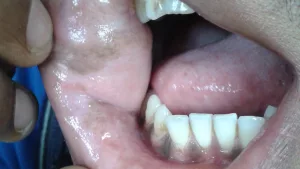
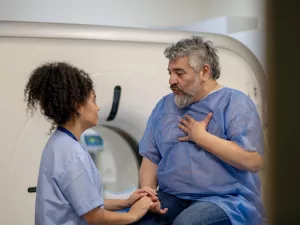

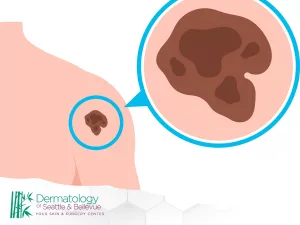
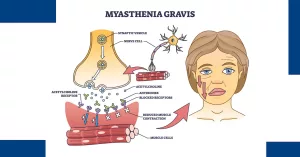



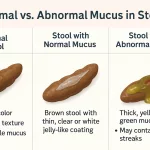

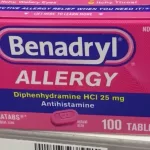
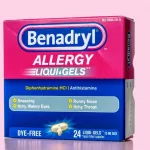



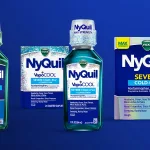
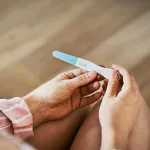
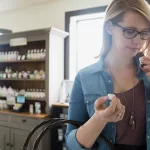
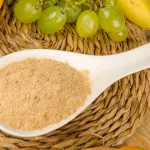


Leave a Reply
You must be logged in to post a comment.